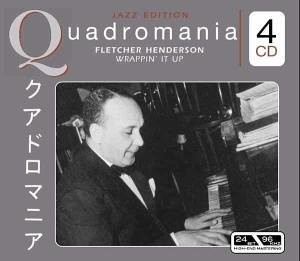Welcome to a humble guide to the music of Public Enemy, one of the most iconic, innovative, and long-running hip-hop groups in history. This guide focuses on albums, rather than singles. Links to other resources are provided at the end. Credits listed below are accurate to a point; the band tended to skip attribution — and often intentionally obfuscate — who contributed to producing individual tracks and entire albums. Information on available releases is current for the United States as of early 2016, and focuses on physical formats.
A Brief History
Public Enemy (PE), formed in “Strong Island” [Long Island], NY, in 1982, emerged at the forefront of “conscious” or “positive” hip-hop. Biographer Tim Grierson wrote, they had “little interest in the materialism and bloodshed that had quickly become two of [hip-hop’s] major selling points.” Instead, PE wrote songs mostly about political and social topics. At the same time their music earned a reputation for being dense and hard, as in the most densely layered in all of hip-hop. At the peak of their fame in the late 1980s and early 1990s, they were deemed controversial by some — partly a conscious strategy — and became embroiled in quite a few scandals — some deserved and some not. As much as they tried to make intelligent music, sometimes looking back it doesn’t seem as intelligent as it aims to be (though usually it is). They have survived for decades, innovated hip-hop music and various music production and distribution techniques, and fallen off from widespread public consciousness in later years. Chuck D has engaged in various other projects, from speaking at conferences to TV hosting and more, and Flavor Flav starred in a number of “reality” TV shows (“The Surreal Life,” “Strange Love,” and “Flavor of Love”), a short-lived sitcom (“Under One Roof”) and launched some restaurants (he is a trained chef) that quickly closed. Chuck D has maintained an anti-drugs (including anti-alcohol) approach, though Flavor Flav has had many drug abuse problems and his TV appearances are rather at odds with the core of Public Enemy’s artistic stance. And yet, given that Chuck D has said that Flavor Flav “is the street,” the group’s willingness to include someone from a different sort of background faced with attendant challenges is worthy of respect. The group was (and is) more than just Chuck (the MC) and Flavor (the hype man), though a self-serving (unaccountable and even hypocritical) opacity falls across much of their work as to who is involved (or not involved) in actually making the music on recordings — the credits that follow are accordingly incomplete. There have been falling-outs, bitter rivalries, members ejected then later brought back, new members absorbed — accounts of those happenings vary widely and former members disagree with a few of the “official” accounts. Technically, Chuck D and Flavor Flav are the band, in terms of who signs the contracts, and the others are their employees. Professor Griff was forced out in the early 1990s, but he returned seven years later. Hank Shocklee was perhaps the major innovator in terms of producing the beats on records from the band’s peak, through a combination of legal issues related to sampling, theft of the vinyl the band used for samples, and differences of opinion about whose contributions made the band successful, he left in the early 1990s. Whether directly related or not, the band only briefly maintained both commercial and critical appeal following that split. Then in 2020 even Flavor Flav and Chuck D got into a dispute, with Chuck’s faction performing as “Public Enemy Radio”. And, despite all this, PE has made good music decades after they formed. Most interestingly, they have taken bold steps to maintain independence from the corporate, major-label music world while still touring and recording. There are few hip-hop acts as long-lived or as deeply beloved by fans.
Legend:
⊕⊕⊕ = top-tier; an essential
⊕⊕ = second-tier; enjoyable but more for the confirmed fan; worthwhile after you’ve explored the essentials and still want more
⊕ = third-tier; a lesser album, for completists, with perhaps only one or so notable songs
Continue reading “Don’t Believe the Hype: A Guide to Public Enemy”



